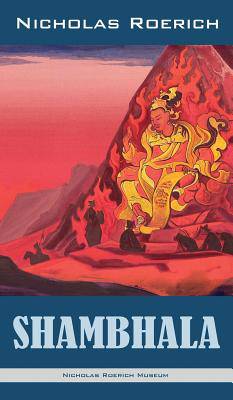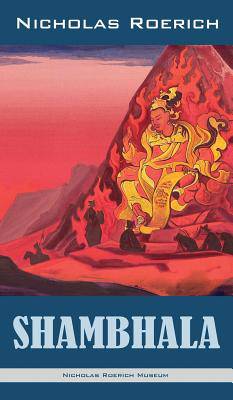
- Afhalen na 1 uur in een winkel met voorraad
- Gratis thuislevering in België
- Ruim aanbod met 7 miljoen producten
- Afhalen na 1 uur in een winkel met voorraad
- Gratis thuislevering in België
- Ruim aanbod met 7 miljoen producten
Omschrijving
In "Shambhala" Roerich has recorded the way of his journey through Central Asia and Tibet in the terms of spirit. It is a record of legends, of parables, of notes--the very substance of which the larger reality is composed, and all revealing different facets of the theme of Shambhala. In this book--as in his other books, "Altai-Himalaya" and "Heart of Asia," one realizes that Roerich's vision is manifold. Traveling on his way, he discerns all the beauty of the natural spectacle through which he passes. And in his works--as in his paintings--he records this panorama in successive sparks which flow into a continuous pageantry. But in addition, Roerich perceives also that subtler manifestation of the countries and peoples through which he journeys. He discerns their thoughts; he perceives the pulsating, throbbing hopes and beliefs that sweep like winds across space. And it is this record--so little visible to the many of us--that becomes the vital force of Roerich's message.
One must remark the style of Roerich--it has the unrepeatable quality and synthesis of life. He transmits to us the essentials and we discern that these fragments of seeming fantasy are weaving themselves into a pattern of essential truth and essential beauty.
Roerich has named this book, "Shambhala" advisedly. Reading it, one realizes that Roerich has woven a wreath which he has offered in full reverence to the great Principle which is Shambhala, the New Era; for truly it is the salutary wind of people's thought and faith which will aid the fires of Shambhala. And once again, as in all the deeds of his inexhaustible creative fervor, Roerich's "Shambhala" pronounces the evocation of the fires of new human achievement and a new human destiny.
Specificaties
Betrokkenen
- Auteur(s):
- Uitgeverij:
Inhoud
- Aantal bladzijden:
- 258
- Taal:
- Engels
Eigenschappen
- Productcode (EAN):
- 9781947016330
- Verschijningsdatum:
- 19/10/2017
- Uitvoering:
- Hardcover
- Formaat:
- Genaaid
- Afmetingen:
- 127 mm x 203 mm
- Gewicht:
- 381 g

Alleen bij Standaard Boekhandel
Beoordelingen
We publiceren alleen reviews die voldoen aan de voorwaarden voor reviews. Bekijk onze voorwaarden voor reviews.












